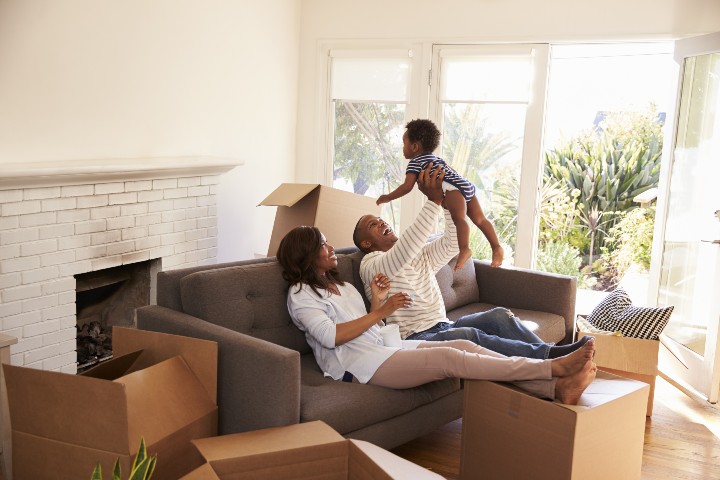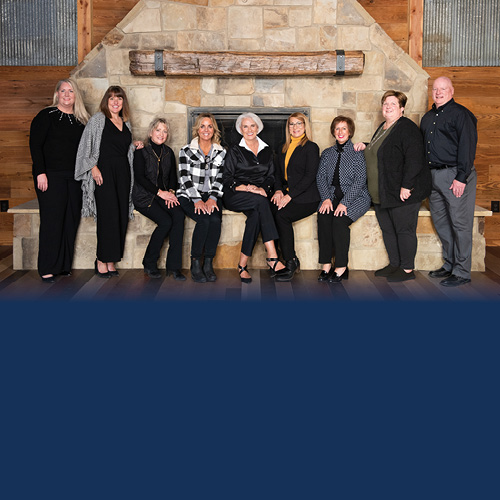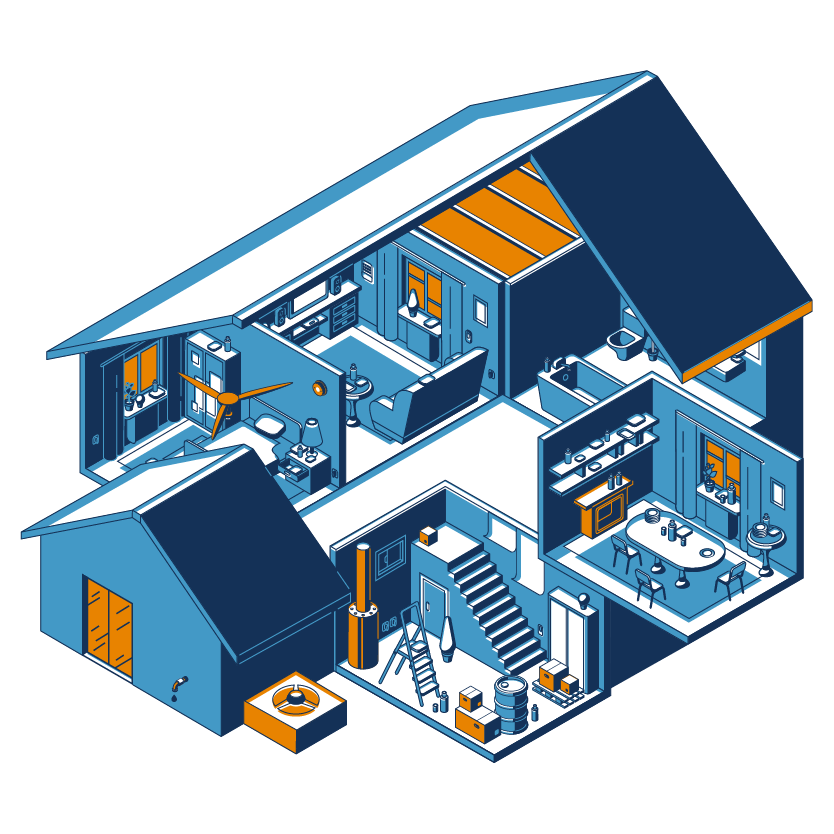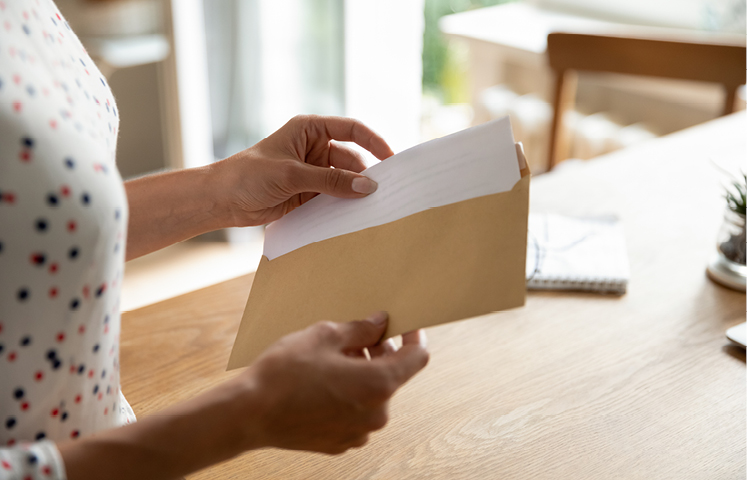In our last article, we provided an overview of hidden costs in the homebuying process, especially those that appear in purchase agreements and at closing. But hidden costs don’t just stop there. Your mortgage lender may help you factor property taxes and insurance into your estimated monthly payments, but there are other costs you might not be prepared for that occur as you move into your new home. Here’s an overview of a few common expenses that come with moving in and maintaining a new home.
Moving expenses
Professional movers can come with steep prices. If you want to use a moving service but still save some money, consider packing up your belongings yourself in boxes or containers so the movers spend their time loading and unloading. If you’re moving for a new job or are relocating to a new location with your current employer, be sure to ask about being compensated for moving costs, as some employers are willing to help with this expense.
An alternative to hiring a professional mover is to rent a moving truck and move your items yourself. Many home buyers that own fewer items to move or simply want to save money choose this option.
Double mortgage payments
Sometimes the sale of an old home and the closing on your new home don’t completely match up, and you may have some overlap of owning both homes at once. If this is the case in your situation, be prepared to make mortgage, utility, tax, and other payments on both homes until the closing on your old home is complete.
Check out our article, Buy Before Selling Or Sell Before Buying, to learn more about lining up the sales of your old and new homes.
HOA fees
Many neighborhoods require you join a Home Owners Association (HOA), which exists to help maintain the neighborhood. A full year’s payment of HOA fees are typically due at or soon after the time of move-in. Be sure to ask your HOA representative about services that will be performed using the funds, as they could help reduce some of your own maintenance costs, including lawn care and trash removal.
Home repairs and maintenance
Any home repairs that weren’t requested or accepted in your purchase agreement would occur after closing and come at your own expense. Common home updates made before moving in are painting and carpet replacement but can include a variety of other projects, too.
In addition to immediate repairs, don’t forget to create a budget for ongoing maintenance expenses to account for normal wear and tear as your home ages. The amount you should budget depends on how old your home is and how many repairs and replacements you plan on making up front.
Window treatments
Another commonly overlooked expense of buying a home is the cost of window treatments, including curtain rods, blinds and drapes. If possible, start shopping for window treatments as soon as your offer is accepted to possibly score a better deal and to have them ready at move-in.
Furniture, appliances and décor
You may have furniture, appliances and décor from your previous home, or these items may come with the home you buy if agreed upon in your purchase agreement. If you do not already own these items and they will not come with the house, be sure to account for a large part of your budget going towards living and bedroom furniture, kitchen and laundry appliances and a variety of home décor items.
Landscaping and ongoing lawncare
Many homeowners haven’t updated their landscaping for years, so if you’re buying a previously owned home, consider budgeting for landscaping projects and lawn treatments. If you’re a first-time homebuyer, be sure to also account for the cost of buying a lawn mower, snow blower and other lawn maintenance tools. Additionally, if you own a dog, you may want to budget for fence installation if the home doesn’t already have one.
The excitement of buying a home can sometimes overshadow the expenses that come with preparing your new home for move-in. Especially if you are a first-time homebuyer, many of these costs can come as a surprise. Whether you’re shopping for your first home or are a seasoned homeowner going through the process once again, keep this list handy as you calculate your total home buying budget.








 Equal Housing Lender. SBA Preferred Lender. NMLS #440379
Equal Housing Lender. SBA Preferred Lender. NMLS #440379